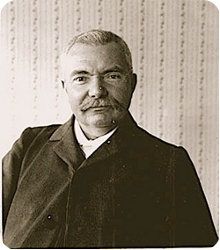A Quote by Thomas Carlyle
For suffering and enduring there is no remedy, but striving and doing.
Related Quotes
The discipline of suffering, of great suffering- do you not know that only this discipline has created all enhancements of man so far? That tension of the soul in unhappiness which cultivates its strength, its shudders face to face with great ruin, its inventiveness and courage in enduring, preserving, interpreting, and exploiting suffering, and whatever has been granted to it of profundity, secret, mask, spirit, cunning, greatness- was it not granted to it through suffering, through the discipline of great suffering?
Patience is not passive resignation, nor is it failing to act because of our fears. Patience means active waiting and enduring. It means staying with something and doing all that we can - working, hoping, and exercising faith; bearing hardship with fortitude, even when the desires of our hearts are delayed. Patience is not simply enduring; it is enduring well!
When there exists anywhere a state of suffering, a wrong, a condition of affairs that men of feeling deplore and that troubles the conscience of the upright, to become resigned to it is wicked. Although the evil flaunts itself before our eyes, and no remedy is in sight, we must go and seek a remedy. In the creation of the God of Justice, evil can be but a transitory state.
To think of enduring to the end as ‘hanging in there,’ doing one’s duty relentlessly, is not inaccurate. Yet enduring to the end is more than outlasting and surviving, though it includes those qualities. We are called upon, as was the Prophet Joseph, to ‘endure it well,’ gracefully, not grudgingly. (D&C 121:8.) We are also told that we must ‘endure in faith.’ (D&C 101:35.) These dimensions of enduring are important to note. Likewise, we are asked to endure ‘valiantly.’ (D&C 121:29.)
The world is full of suffering. Birth is suffering, decre- pitude is suffering, sickness and death are sufferings. To face a man of hatred is suffering, to be separated from a beloved one is suffering, to be vainly struggling to satisfy one's needs is suffering. In fact, life that is not free from desire and passion is always involved with suffering.
Increasingly in recent times we have come first to identify the remedy that is most agreeable, most convenient, most in accord with major pecuniary or political interest, the one that reflects our available faculty for action; then we move from the remedy so available or desired back to a cause to which that remedy is relevant.






































